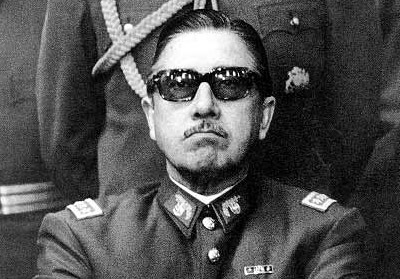Chile’s judiciary was a pliant partner of the military junta and shut its eyes to violations of constitutional rights, says a report issued today by the ICJ.
The report, “Chile: A Time of Reckoning”, maintains that the judiciary proved unwilling or unable to confront the authorities over flagrant human rights abuses during the military rule from 1973 to 1990.
At this moment Chile is coming face to face with its brutal past. On 16 November Osvaldo Romo Mena, an agent of the notorious Directorate of National Intelligence (DINA), was deported by Brazil where he had sought refuge.
Mr. Romo appeared before a civil court judge in Santiago to be tried for kidnap, murder and torture. The courts are also examining the 1976 assassination in the United States of Orlando Letelier, former Minister of Foreign Affairs and Defence under President Salvador Allende. The elected President Allende was ousted by the military in 1973 and General Augusto Pinochet Ugarte led the country until 1990.
During this period thousands of cases of torture, disappearance and murder were brought before the courts. Except in a handful of cases, the courts failed to complete investigations, to establish the criminal responsibility of state agents or to bring any of those responsible to justice.
Investigations were usually transferred to military courts which offered no legal protection to the victim. Culprits were often given amnesty and cases were closed.
The author of the report, Sebastian Brett, points out that Chile differed from neighbouring countries that underwent transitions to democracy in the 1980s. Unlike Argentina – where the military junta replaced up to 80 per cent of the judges after the 1976 coup – Chile’s Supreme Court was untouched by the junta. The court even presided over the dismissal of many judges regarded as supporters of the Allende government and others who simply tried to inquire into human rights violations.
The International Commission of Jurists (ICJ), headquartered in Geneva, is a non-governmental organization in consultative status with the United Nations Economic and Social Council, UNESCO, the Council of Europe and the OAU. Founded in 1952, it is composed of 31 distinguished jurists from around the globe and has 75 national sections and affiliated organizations.
The Centre for the Independence of Judges and Lawyers (CIJL) was founded in 1978 by the ICJ to promote the independence of the judges and lawyers and to organize support for jurists who are being harassed or persecuted. The CIJL has been the driving force behind the adoption of the UN Basic Principles on the Role of Lawyers and the UN Basic Principles on the Independence of the Judiciary.





